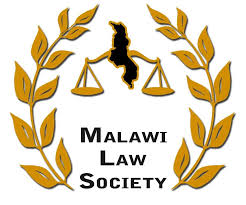Malawi Law Society (MLS) is fiercely objecting to the hiring of South African lawyers by the Malawi Electoral Commission (MEC) in the presidential election appeals case.
Lawyers Kaukonde (L) and Mpaka: MLS submits to court that financial transaction involved in the hiring of the South African lawyers should be declared illegal.
In an executive memorandum to members, honorary secretary Martha Kaukonde says MLS has raised four grounds of objection to the admissions of the South African lawyers; Dumisa Buhle Ntsebeza and Elizabeth Makhanani Baloyi Mere.
“The procuring entity appears not to have complied with the Public Procurement Act when engaging the foreign counsel,” she says.
She says the Electoral Commission did not comply with the Public Finance Management Act, Regulations and Constitutional guidelines when hiring the foreign lawyers.
“The agreement to pay the sum of US$788, 300 appears not to be in line with the prescription of fair and reasonable charges prescribed under the Legal Education and Legal Practitioners Act and Rules,” says Kaukonde.
MLS vice-chairperson Patrick Mpaka said the Public Procurement and Disposal Assets Authority failed to justify why MEC was allowed to use single source procurement in the recruitment of the lawyers.
He also said MEC failed to provide proof of funding, as the procurement entity, prior to hiring the foreign lawyers and did not comply with Public Finance Management Act.
“Section 23 of the [Public Finance Management] Act prohibits expenditure where there is no parliamentary appropriation, which us a reiteration of Section 173 of the Constitution, which also prohibits drawing money from the Consolidated Fund without parliamentary appropriation,” reads the MLS submission in part.
The lawyers’ body has asked court that the financial transaction involved in the hiring of the South African lawyers should be declared illegal.
MLS also argues that the K600 million billing for the South African lawyers is “exorbitant and unreasonable.”
The body also says that in the wake of the coronavirus disease, the engagement of the foreign lawyers pose a public health risk to all parties concerned given the lawyers will be coming from one of the hotspots of the disease.
These objections are contained in detailed affidavits and skeleton arguments that have been filed with the court and Chief Justice Andrew Nyirenda is examining.



